CNC Thread Rolling Machine: Precision & High Performance
The Transformative Power of CNC Thread Rolling Technology in Modern Manufacturing
In the realm of precision fastener production and beyond, the advancement of threading technology has been pivotal, significantly driven by Computer Numerical Control (CNC) integration. A cnc thread rolling machine represents the pinnacle of this evolution, offering unparalleled accuracy, repeatability, and efficiency in forming threads on various materials. Unlike traditional cutting or grinding methods, thread rolling is a cold-forming process that plastically deforms the workpiece using hardened dies, resulting in threads with superior tensile strength, fatigue resistance, and surface finish. This technology is critical across numerous industrial sectors, from automotive and aerospace to construction and medical devices, where the integrity and reliability of threaded components are paramount. The increasing demand for higher performance fasteners, coupled with the need for cost-effective and environmentally friendly manufacturing processes, positions CNC thread rolling as a cornerstone of modern industrial production. Trends indicate a continued shift towards automation and intelligence in machine tools, with cnc thread rolling machine technology leading the charge in achieving tighter tolerances and processing a broader range of exotic alloys. This paradigm shift emphasizes not just speed, but also the metallurgical benefits of cold forming, such as improved grain structure and enhanced material properties, which are unattainable through material removal techniques. Manufacturers are increasingly seeking solutions that offer flexibility for diverse product lines, rapid changeovers, and integration with broader Industry 4.0 initiatives, making the sophisticated control and adaptability of CNC systems indispensable.
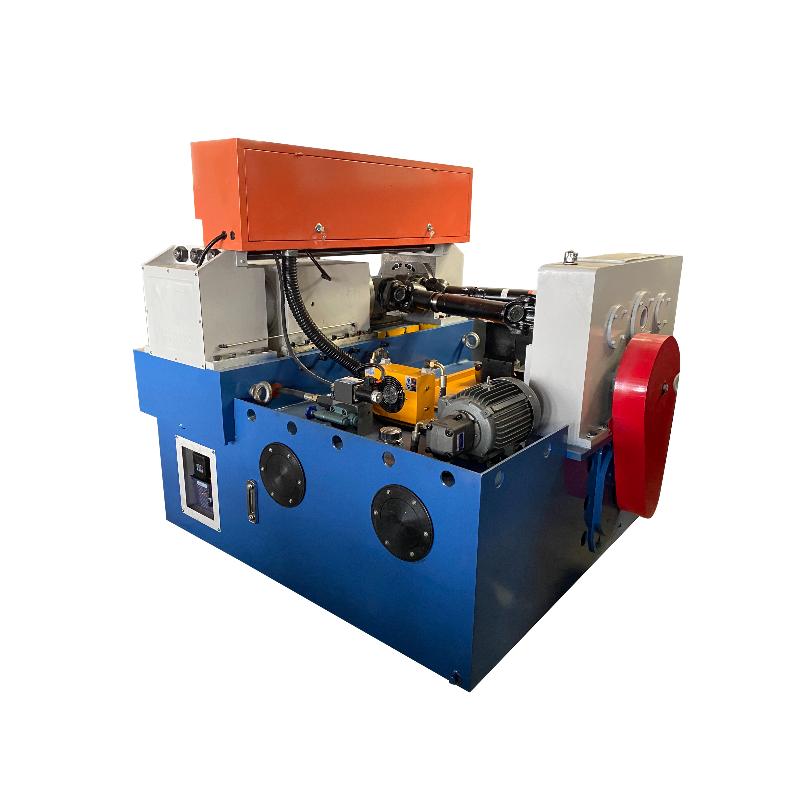
The evolution from manual or cam-driven machines to fully automated CNC systems has dramatically transformed the capabilities and applications of thread rolling. Modern cnc thread rolling machine models incorporate multi-axis control, allowing for complex thread profiles, tapered threads, and even knurling operations with exceptional precision. The feedback loops inherent in CNC systems ensure consistent quality by continuously monitoring parameters such as rolling force, speed, and position, adjusting as necessary to maintain optimal conditions. This level of control minimizes scrap rates and reduces the need for post-processing, contributing to significant material and energy savings. Furthermore, the robust design and advanced materials used in these machines guarantee a long service life, even under continuous heavy-duty operation. For industries like petrochemicals, metallurgy, and water supply/drainage, where components are subjected to extreme pressures, temperatures, and corrosive environments, the superior mechanical properties imparted by thread rolling are invaluable. For example, anchor bolts and stainless steel rods produced using this method exhibit enhanced resistance to stress corrosion cracking and fatigue failure, critical for infrastructure projects requiring decades of reliability. The cold working process densifies the material at the thread root, a critical stress point, thereby extending the component's operational lifespan and reducing maintenance frequency, aligning perfectly with sustainability goals and life-cycle cost optimization.
The Rigorous Manufacturing Journey of a CNC Thread Rolling Machine
The production of a high-performance cnc thread rolling machine is an intricate process demanding exceptional precision, superior material selection, and adherence to stringent quality control standards. The journey begins with the selection of high-grade raw materials, primarily specialized alloys for the machine’s main frame and critical components. For instance, the machine's base and housing are typically made from high-strength cast iron (e.g., FC300 or GGG60), chosen for its excellent vibration dampening properties, rigidity, and dimensional stability, which are crucial for maintaining precision during high-force rolling operations. Key components like spindles, gears, and shafts are often forged from hardened alloy steels (e.g., SCM440, 40Cr) and then meticulously heat-treated to achieve optimal hardness, wear resistance, and toughness. The manufacturing process involves a combination of traditional and advanced techniques. Large structural parts undergo precise casting or forging processes to achieve their initial form, followed by extensive annealing to relieve internal stresses and enhance machinability. Subsequent stages rely heavily on advanced CNC machining centers to mill, bore, and grind components to micron-level tolerances. This ensures perfect alignment of rolling dies and consistent force application. For example, the machine's critical rolling slides, responsible for guiding the dies, are often ground to a surface finish of Ra 0.8µm or better, ensuring smooth, low-friction operation and minimal wear over time.
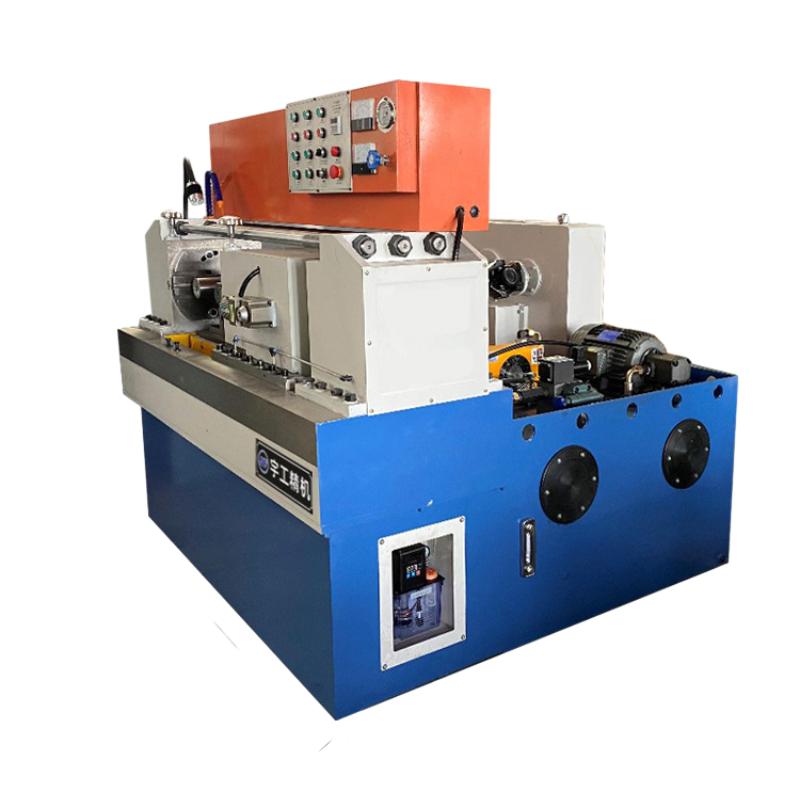
Quality inspection is integrated at every stage of the cnc thread rolling machine manufacturing process. From raw material inspection for chemical composition and mechanical properties, through in-process dimensional checks using CMMs (Coordinate Measuring Machines), to final performance testing, every component and sub-assembly must meet strict international standards such as ISO 9001 for quality management systems and ANSI standards for machine tool performance. Components like bearings, hydraulic cylinders, and electrical systems are sourced from reputable suppliers and subjected to rigorous incoming quality control. The assembly phase involves skilled technicians meticulously integrating mechanical, hydraulic, and electrical systems, followed by precise alignment and calibration of all axes. Before shipment, each cnc thread rolling machine undergoes exhaustive factory acceptance tests (FAT), where it is run under various load conditions, forming threads on different materials to verify its performance against specified parameters like thread accuracy (e.g., ISO 228, ASME B1.1), surface finish, and operational stability. The typical service life of a well-maintained CNC thread rolling machine can extend to 15-20 years or more, thanks to its robust construction and high-quality components. These machines are particularly beneficial in industries like petrochemicals, metallurgy, and water supply and drainage, where their capability to produce high-strength, corrosion-resistant threads ensures the longevity and safety of critical infrastructure. Their energy-efficient design, often incorporating servo-driven systems, reduces operational costs, while the cold-forming process itself contributes to material savings by eliminating chip waste and enhancing material utilization.
Technical Parameters and Performance Metrics of CNC Thread Rolling Machines
Understanding the core technical parameters of a cnc thread rolling machine is crucial for selecting the right equipment for specific manufacturing needs. These machines are engineered for precision and productivity, with key specifications dictating their capabilities. The maximum thread diameter and pitch, alongside the maximum rolling force, are primary indicators of a machine's capacity. For instance, a robust CNC machine might handle thread diameters ranging from 5mm to 100mm, with pitches up to 10mm, exerting rolling forces anywhere from 10 to 50 tons, depending on the model and application. The number of axes (e.g., 2-axis, 3-axis, or 4-axis) directly correlates with the machine's versatility, enabling the production of various thread forms, including standard metric, imperial, Acme, trapezoidal, and custom profiles, with superior lead accuracy. Motor power, typically ranging from 7.5kW to 30kW, is another critical parameter, influencing both the machine's strength and its energy efficiency, especially when paired with modern servo-driven systems that adjust power consumption based on real-time load. The feed rate, often expressed in threads per minute or distance per second, determines the production speed, while the machine's footprint and weight are important considerations for plant layout and installation.
Typical CNC Thread Rolling Machine Parameters
| Parameter | Typical Range / Value | Unit |
|---|---|---|
| Max. Thread Diameter | 5 - 100 | mm |
| Max. Thread Pitch | 0.8 - 10 | mm |
| Max. Rolling Force | 10 - 50 | Tons |
| Main Motor Power | 7.5 - 30 | kW |
| Number of Rolling Dies | 2 or 3 | - |
| Spindle Speed Range | 20 - 150 | RPM |
| Machine Dimensions (L x W x H) | Approx. 2m x 1.5m x 1.8m | - |
| Machine Weight | 3000 - 8000 | kg |
The performance advantages of cnc thread rolling machine technology extend beyond mere specifications. The cold working process enhances the material's grain structure, increasing its work hardening and creating a smoother, burnished thread surface with compressive residual stresses. This not only significantly boosts the static and dynamic strength of the threads but also makes them more resistant to wear, fretting, and corrosion, crucial for components used in high-stress, abrasive, or harsh chemical environments. Moreover, the material savings are considerable as thread rolling generates no chips or waste material, unlike cutting methods. This efficiency translates directly into lower material costs and reduced environmental impact. For high-volume production, the speed and consistency of a cnc thread rolling machine are unmatched, enabling rapid cycles and minimal downtime. Our `anchor bolt stainless rod thread making machine thread rolling machine` excels in these areas, specifically designed for robust performance in demanding applications, ensuring superior thread quality on critical components like stainless steel anchor rods, which often require exceptional corrosion resistance and mechanical strength for structural integrity. This machine’s ability to achieve precise thread forms on materials typically challenging for traditional methods underscores its advanced engineering and its commitment to meeting the rigorous demands of industrial professionals.
Market Dynamics: CNC vs. Other Threading Technologies and Applications
The market for thread rolling machines is diverse, offering various solutions tailored to specific needs. While the cnc thread rolling machine stands out for its precision and versatility, it's important to understand its positioning relative to other common types such as the `flat thread rolling machine` and `hydraulic threading machine`, or even smaller-scale `mini thread rolling machine` options. A `flat thread rolling machine` typically uses two flat dies, one stationary and one reciprocating, ideal for high-volume production of fasteners like bolts and screws with standard thread forms. They are generally faster for specific, simpler thread geometries but offer less flexibility in terms of thread profile changes and material types compared to CNC systems. The `hydraulic threading machine`, on the other hand, leverages hydraulic power to actuate the rolling dies, providing significant rolling force and stability, making them suitable for larger diameter threads or tougher materials. While robust, their control over specific parameters might not be as granular or dynamic as a full CNC system, which offers superior repeatability through precise electronic control of all axes.
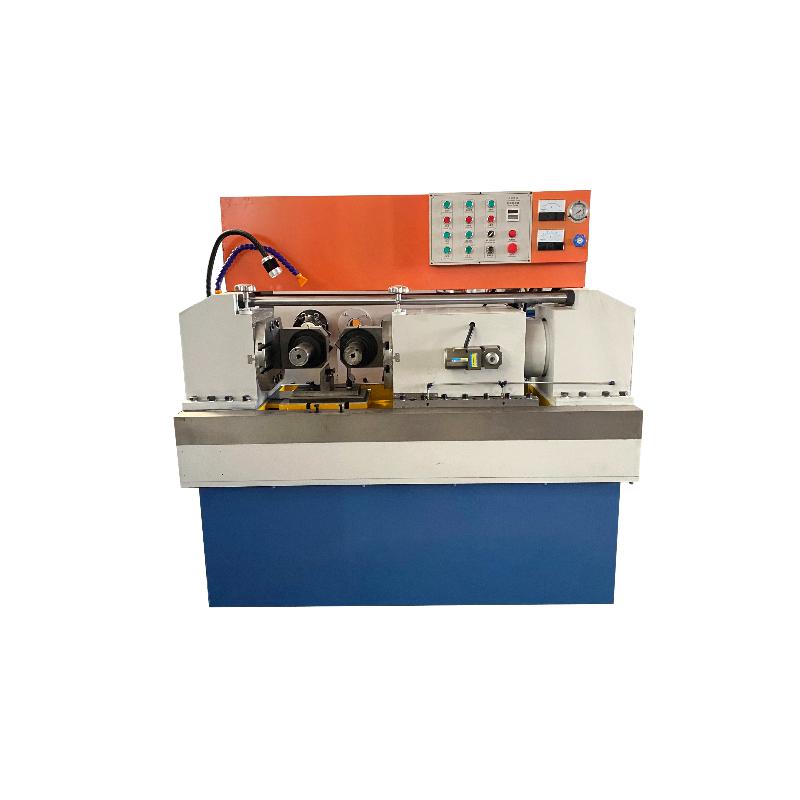
A `mini thread rolling machine` is often designed for smaller parts, prototyping, or specific niche applications where space or budget are limited, providing a cost-effective solution but with limitations on capacity and capability. The choice between these technologies depends on factors like required precision, production volume, material hardness, part complexity, and budget. For industries demanding extreme precision and adaptability, such as aerospace, medical implants, or high-performance automotive components, the investment in a cnc thread rolling machine is justified by its ability to produce threads that meet stringent specifications (e.g., ISO 13920-B for geometric tolerances) consistently. For example, in the aerospace sector, where fasteners are critical safety components, the cold-formed threads produced by CNC machines offer superior fatigue life compared to cut threads, reducing the risk of failure under cyclic loading. In construction, the machine ensures robust threads for rebar and anchor bolts, vital for structural integrity, while in energy, it enables durable threads for piping and pressure vessels in oil & gas applications. Our `anchor bolt stainless rod thread making machine thread rolling machine` combines the best of these worlds: it provides the robust performance expected from a high-quality thread rolling machine, while its design caters to the precise threading needs of stainless steel rods and anchor bolts, making it a reliable choice for demanding construction and industrial applications where durability and corrosion resistance are key. This specialized focus ensures it delivers superior results for specific, high-value components.
Custom Solutions, Case Studies, and Our Commitment to Trust
Recognizing that every industrial application presents unique challenges, we specialize in providing tailored solutions utilizing our advanced cnc thread rolling machine technology. Our engineering team collaborates closely with clients to understand specific material properties, thread specifications, and production volume requirements, designing custom dies and programming bespoke control sequences to optimize performance. For instance, a recent project involved developing a solution for threading high-tensile strength superalloys used in critical aerospace components, requiring precise control over rolling force and multiple passes to achieve the desired thread form without material cracking or excessive work hardening. Through extensive material analysis and iterative die design, we achieved a process that consistently met stringent AS9100 quality standards, demonstrating superior fatigue life in destructive testing compared to previous methods. Another case involved integrating our `anchor bolt stainless rod thread making machine thread rolling machine` into an automated production line for large-scale construction projects, dramatically increasing throughput while maintaining thread quality on long stainless steel rods, leading to a 30% reduction in production time for the client. Our decades of experience in the field, coupled with certifications like ISO 9001 and adherence to industry best practices, underscore our authoritative standing in precision manufacturing.
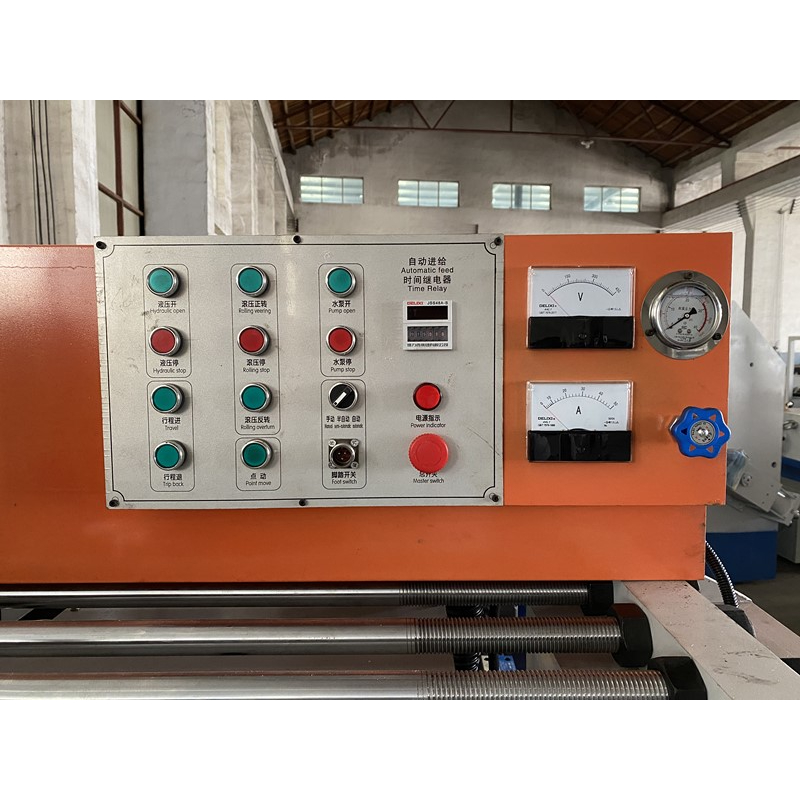
Building and maintaining client trust is paramount. Our commitment extends beyond the initial sale, encompassing comprehensive support and transparent operational policies. We provide detailed delivery cycle information, typically ranging from 8-12 weeks for standard cnc thread rolling machine configurations, with project-specific timelines for custom solutions communicated clearly upfront. Every machine comes with a robust 12-month warranty covering parts and labor, reflecting our confidence in our product's quality and durability. Our dedicated customer support team is available for technical assistance, troubleshooting, and preventive maintenance guidance, ensuring minimal downtime and optimal machine performance throughout its lifespan. We also offer on-site training for client personnel, empowering them with the expertise to operate and maintain the machines efficiently. Our commitment to trustworthiness is further reinforced by our transparent communication regarding machine capabilities, potential limitations, and expected outcomes, ensuring clients make informed decisions. Furthermore, our machines are designed for seamless integration into existing manufacturing ecosystems, leveraging industry-standard communication protocols, which simplifies setup and enhances overall operational efficiency, a key factor in long-term client satisfaction and partnership.
Frequently Asked Questions (FAQs) about CNC Thread Rolling Machines
- Q: What materials can a cnc thread rolling machine process?
- A: Our cnc thread rolling machines are highly versatile and can process a wide range of materials, including various grades of stainless steel (e.g., 304, 316, 410), carbon steel, alloy steel, brass, copper, aluminum, and even some specialized superalloys. The choice of material impacts the specific rolling dies used and the machine's setup parameters, but the inherent strength and precision of CNC machines allow for excellent results across this spectrum. The cold-forming process is especially beneficial for materials where chip removal is challenging or undesirable, enhancing their mechanical properties.
- Q: How does thread rolling compare to thread cutting in terms of thread quality and strength?
- A: Thread rolling is a cold-forming process that plastically deforms the material, resulting in threads with superior mechanical properties compared to thread cutting. Rolling enhances fatigue strength by creating compressive residual stresses at the thread root, improves surface finish by burnishing the material, and strengthens the thread by maintaining the material's grain flow. Thread cutting, conversely, removes material, interrupting the grain flow and often leaving microscopic tears or burrs that can initiate cracks under stress. For critical applications requiring high strength and durability, rolled threads are unequivocally preferred.
- Q: What is the typical lead time for a custom cnc thread rolling machine solution?
- A: For standard cnc thread rolling machine models, the typical lead time is approximately 8 to 12 weeks from order confirmation to shipment. However, for highly customized solutions involving unique tooling, specialized software integration, or extensive R&D, the lead time can extend to 16-24 weeks, depending on complexity. We maintain transparent communication throughout the process, providing regular updates on design, manufacturing, and testing milestones to ensure our clients are always informed.
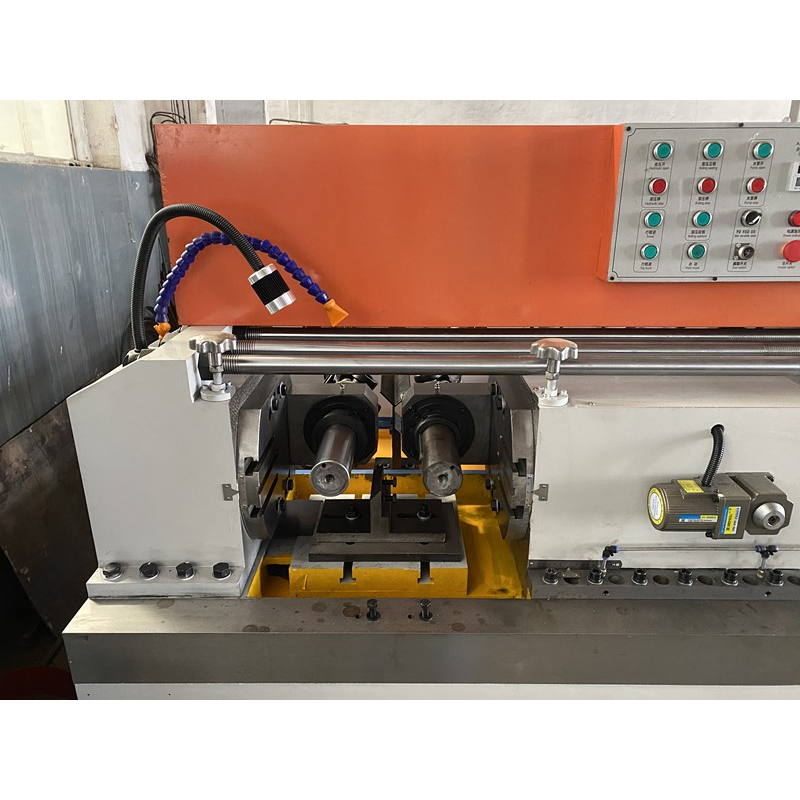
Our commitment to technical excellence and customer satisfaction positions us as a trusted partner in precision threading solutions. The `anchor bolt stainless rod thread making machine thread rolling machine` exemplifies our dedication to robust, high-performance machinery designed to meet the rigorous demands of modern industry. We ensure our technical team is readily available to address any specific queries or operational challenges, providing support that underpins the reliability and longevity of your investment. This proactive and comprehensive approach to client support is a cornerstone of our service philosophy, aiming to foster long-term relationships built on mutual success and continuous operational improvement, ensuring that every cnc thread rolling machine delivers consistent value.
Concluding Insights and Authoritative References
The continuous evolution of the cnc thread rolling machine underscores its indispensable role in the modern manufacturing landscape. Its ability to produce threads with superior mechanical properties, coupled with unmatched precision and efficiency, makes it a critical asset for industries prioritizing product integrity and operational longevity. As global demands for higher performance components continue to escalate, driven by advancements in fields from aerospace to renewable energy, the strategic importance of cold-forming technologies like CNC thread rolling will only grow. Investing in such advanced machinery is not merely an acquisition but a strategic decision to enhance product quality, streamline production, and achieve a competitive edge in an increasingly complex market. The benefits extend beyond the factory floor, contributing to the safety and durability of critical infrastructure and consumer products worldwide. Our dedication to innovation ensures that our machines, including the specialized `anchor bolt stainless rod thread making machine thread rolling machine`, remain at the forefront of this technological curve, delivering value and reliability.
References
- American Society of Mechanical Engineers (ASME) B1.1 - Unified Inch Screw Threads (UN and UNR Thread Form).
- International Organization for Standardization (ISO) 9001:2015 - Quality management systems – Requirements.
- International Organization for Standardization (ISO) 228 - Pipe threads where pressure-tight joints are not made on the threads.
- The Fabricator. "The Science of Thread Rolling: Benefits and Best Practices in Cold Forming".
- Journal of Materials Processing Technology. "Mechanisms of strengthening and fatigue life improvement in thread rolling of fasteners".


